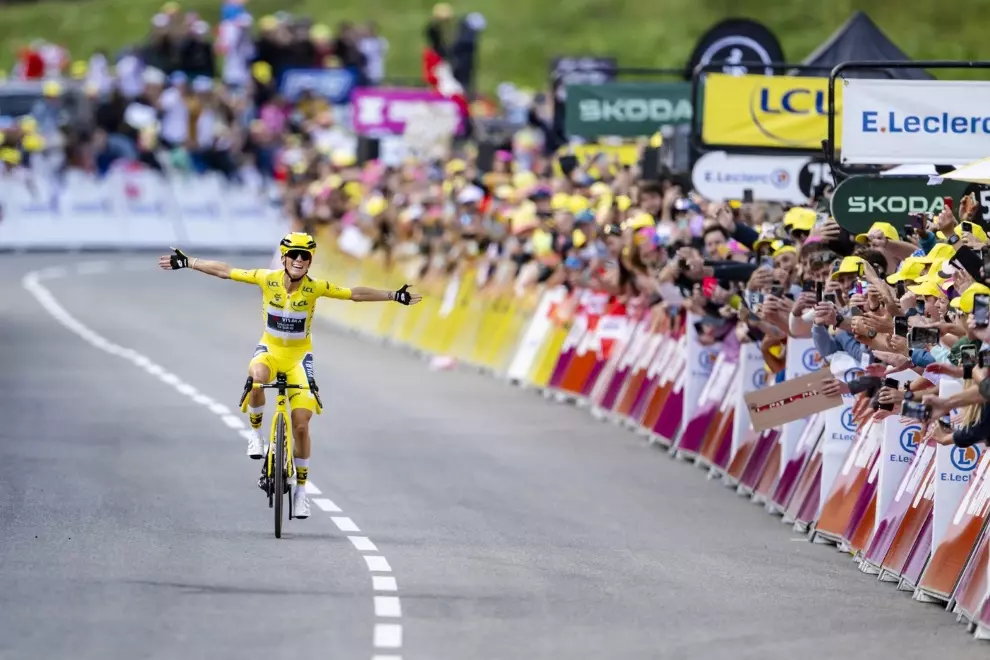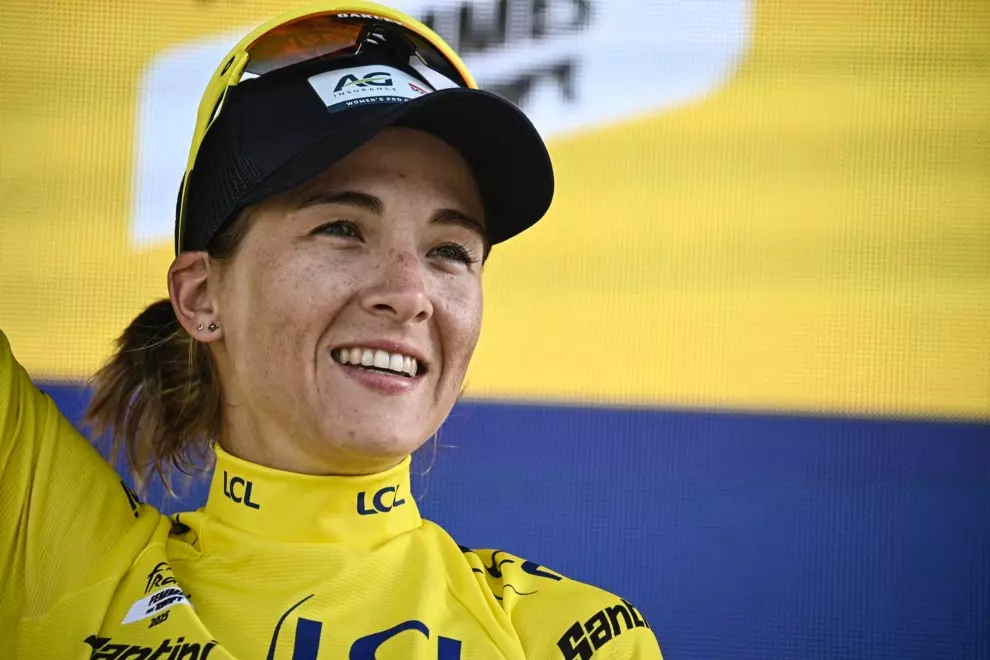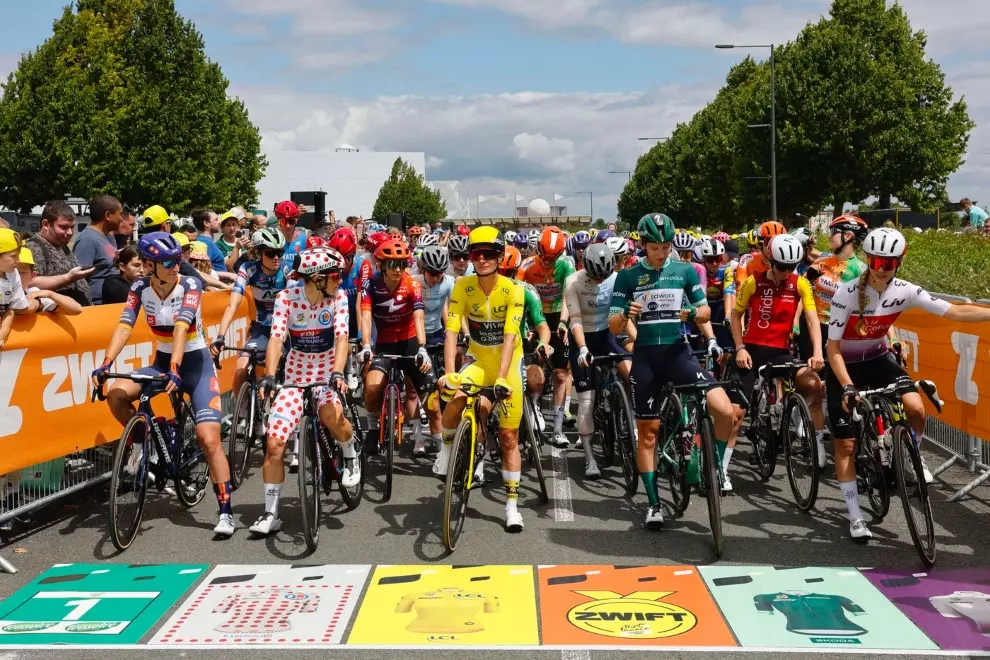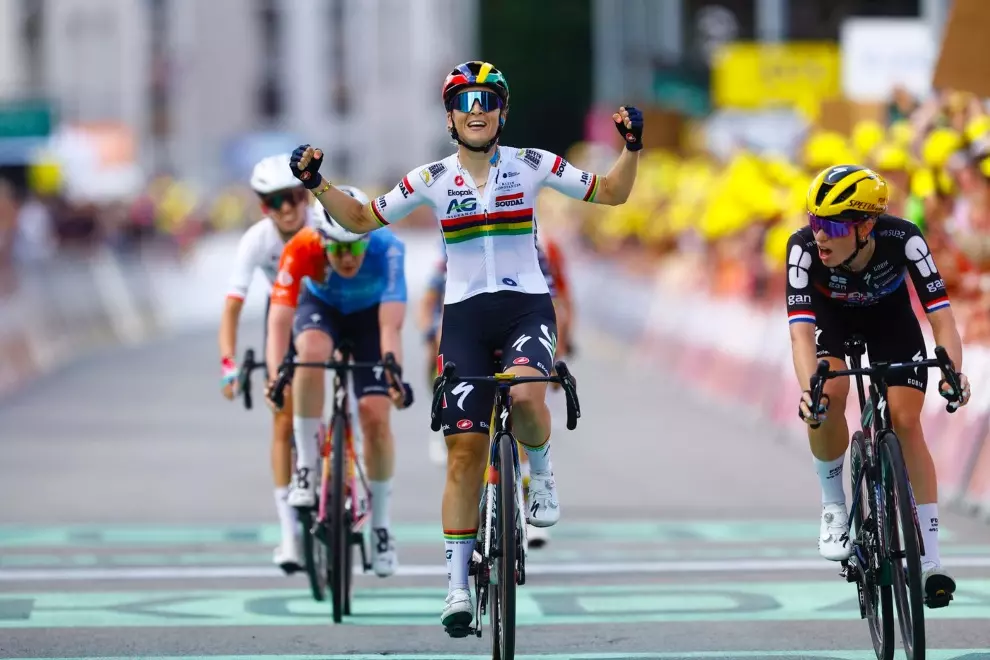If Pogačar wins, he would become the third male rider to win the Giro, Tour and Worlds all in the same year, and the first since Stephen Roche in 1987. If he needs it, he will have the help of one of the best climbers on the road, fellow Slovenian Primož Roglič – unless the recent Vuelta a España winner has ambitions of his own in the race. For his sake, I hope he doesn’t.
Pogačar has one big problem, however: Remco Evenepoel. Evenepoel is on an unprecedented roll, having won gold medals in both the road race and the ITT at the Summer Olympics and, last Sunday, taking the ITT world championship. Should he win on Sunday, he would become the first male rider to win the Olympics and World Championship road races in the same year and the first rider of any gender to win the “golden double-double,” both the ITT and road races at both events in the same year.
Everyone knows how ambitious the 24-year-old Dutch rider is. The prospect of achieving such a singular feat will certainly add some watts to his pedal stroke. However, he will have to do without the considerable support of Wout van Aert, who crashed out of the Vuelta with a serious knee injury. Van Aert was instrumental in Evenepoel’s road race victory at the Olympics. Still, with Victor Campenaerts, Tiesj Benoot and Laurens de Plus on his team, he will not lack for support.
But, based on past performances, this world championship will likely be decided by a long breakaway, Pogačar’s favorite tactic in one-day races. He has an incredible engine and has gone on victorious solo rides of as long as 80km. Expect the Slovenian team to set a blistering early pace, to soften up the competition and reduce the peloton, before he takes off.

If and when Pogačar sets off, with 40 or 50km left to race, Evenepoel should be right on his wheel. The two will then work together to keep the pursuers away and then fight it out mano a mano until one of them breaks. If they come into the final kilometer still riding together, Evenepoel will probably win.
But there is a wild card in the race, defending world road race champion Mathieu van der Poel. The Dutch rider does not have the climbing creds of Pogačar and Evenepoel, but he has trained hard for this race and, in Wilco Kelderman and Bauke Mollema, has some excellent climbers to help him. Plus, almost all the ascents are short, the longest being the Buch am Irchel, at 4.8km @ 4.2%. The rest of the climbs are less than 2km in length, but some are very steep. From 86km to the finish, the riders will tackle six laps of a 26.9km loop in the city of Zürich, with the riders having to climb the Witikom (1.9km @ 6.2%) seven times.
Van der Poel needs to be at his very best to stay with his two main rivals. His second place in the GC and his green jersey win at the very recent Škoda Tour of Luxembourg suggest that he is rounding into form nicely and could pull off a surprise victory that would be no surprise at all, considering his one-day-race record.
If anyone other than one of these three riders wins on Sunday, it would be a bigger upset than when Buster Douglas beat Mike Tyson for the heavyweight world championship in 1990.
Demi Vollering looks the likely winner in the Elite Women’s World Championship road race on Saturday, not only because she is the best female climber on the road, but also because she is coming off three second-place finishes, in the Tour de France Femmes (TdFF), the Tour de Romandie Féminin and last Sunday’s world championship time trial. She also finished second in last year’s world championship road race, so she will be desperate to end this year on a high.
Ironically, her performance in that ITT, losing to Grace Brown by only 17 seconds, suggests she is at the top of her form because she is not known for her time trial prowess. There are fewer climbs on the women’s 154.1km route, which has 2,400m of climbing. But many of them are steep, with the Binz having an average gradient of 9.3% over its 1.5km. The Witikon, 2.3km @5.7%, with ramps of up to 9%, will be climbed four times, as most of the route consists of the Zürich inner-city loop, which the riders will complete four times.
Unfortunately for Vollering, the Binz comes early in the race and is climbed only once. That opens the race up for lesser climbers, especially defending world road race champion, and Vollering’s trade teammate, Lotte Kopecky. The 28-year-old Belgian had an uncharacteristically mediocre result in last Sunday’s ITT, finishing 1:39 behind Brown. My guess is that she used the race as a warmup for the road race.
Kopecky proved in last year’s TdFF, where she won the Skoda green jersey and finished second in the GC behind Vollering, that she can climb. And it was Kopecky who beat Vollering in last year’s road race world championship and in the recent Tour de Romandie Féminin. It could come down to these two riders again.
But there is Poland’s Kasia Niewiadoma, who beat Vollering by a scant 4 seconds in this year’s TdFF, where she showed that she can climb very well. The 29-year-old has proved herself as a top-notch one-day racer, winning this year’s La Flèche Wallonne Féminine by 2 seconds over, yes, Vollering. But she doesn’t have a stellar record in the road race world championship, her best finish a third place in 2021.
For an outsider, I’d consider Elisa Longo Borghini, who won the Tour of Flanders this year; Kristen Faulkner, who won the Olympics road race gold medal and, a very long shot, the 25-year-old French rider Évita Muzic, who finished fourth in this year’s TdFF. In the unlikely case that the race comes down to a bunch sprint, Vollering’s teammate Marianne Vos could take home the gold.




